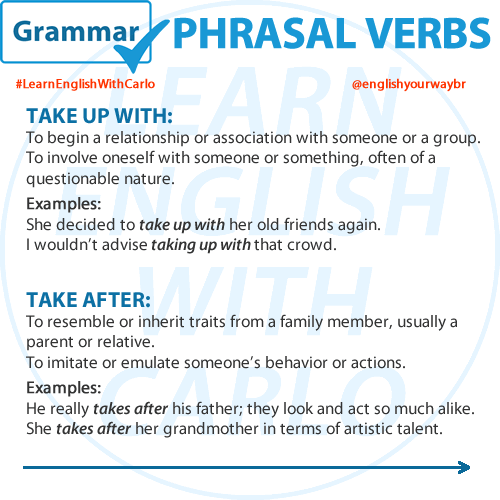Phrasal verbs are special phrases in English made up of a verb (like “take”) and another word (like “off” or “out”). Together, they create a new meaning that might not be obvious from the individual words. They’re really common in English and are used in all kinds of conversations. Learning phrasal verbs helps you understand and speak English better.
Take off:
To depart or become airborne, especially of an aircraft.
To remove something, such as clothing or accessories.
To stop working for a period of time.
Examples:
The plane will take off in ten minutes.
He took off his t-shirt when he arrived at the beach.
He decided to take the day off and relax at home.
Take in:
To comprehend or understand.
To reduce the size or width of something, often by sewing or adjusting.
Examples:
She couldn’t take in all the information at once.
The tailor took in the waist of my pants.
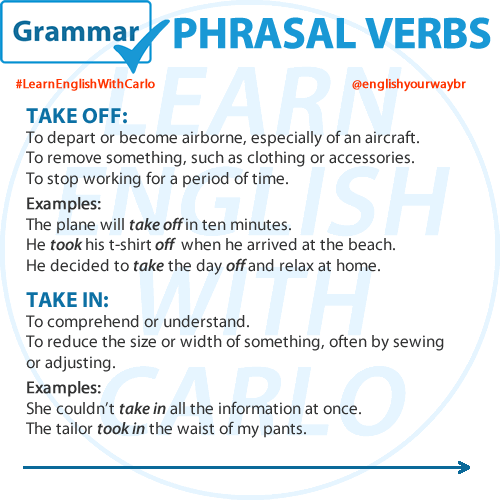
Take out:
To remove something from a place.
To go to a place, typically for entertainment or dining.
Examples:
Let’s take out the trash before it starts to smell.
I’ll take you out for dinner tonight.
Take on:
To undertake or accept a responsibility or challenge.
To confront or deal with a difficult situation.
Examples:
The company decided to take on more employees for the busy season.
She’s not afraid to take on challenges.
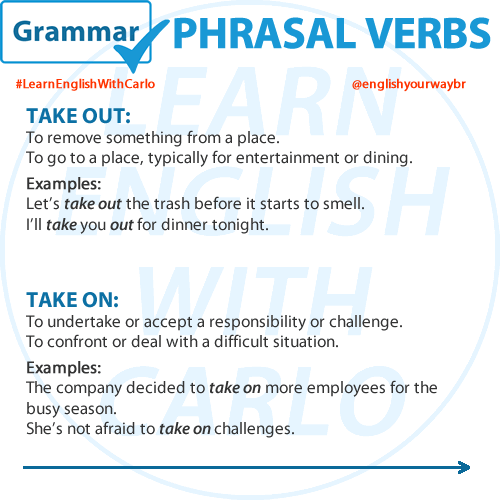
Take up:
To start or begin to do something, often as a hobby or interest.
To occupy or fill space or time.
Examples:
I’m thinking of taking up a new hobby, like painting.
The new project is taking up a lot of my time.
Take over:
To assume control or responsibility for something.
To become dominant or prevalent.
Examples:
The new manager will take over next week.
The rebels attempted to take over the government.
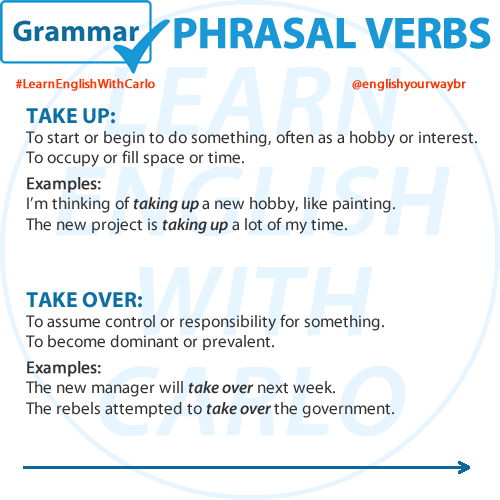
Take back:
To return something to its original location or owner.
To retract or withdraw a statement or action.
Examples:
I need to take back this shirt; it’s too small.
He wishes he could take back what he said.
Take down:
To remove or dismantle something.
To write or record something, often notes or information.
Examples:
The police were able to take down the suspect without incident.
Can you take down this message for me?
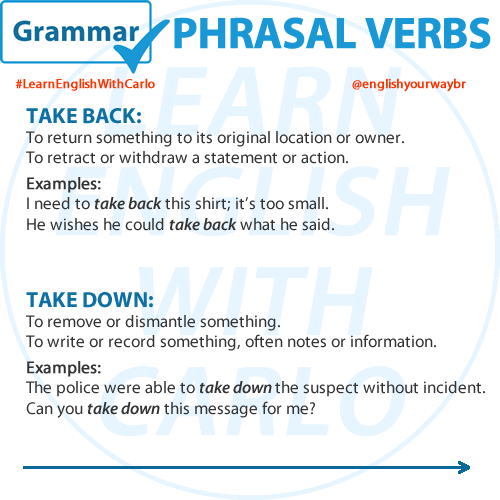
Take up with:
To begin a relationship or association with someone or a group.
To involve oneself with someone or something, often of a questionable nature.
Examples:
She decided to take up with her old friends again.
I wouldn’t advise taking up with that crowd.
Take after:
To resemble or inherit traits from a family member, usually a parent or relative.
To imitate or emulate someone’s behavior or actions.
Examples:
He really takes after his father; they look and act so much alike.
She takes after her mother in terms of artistic talent.
